
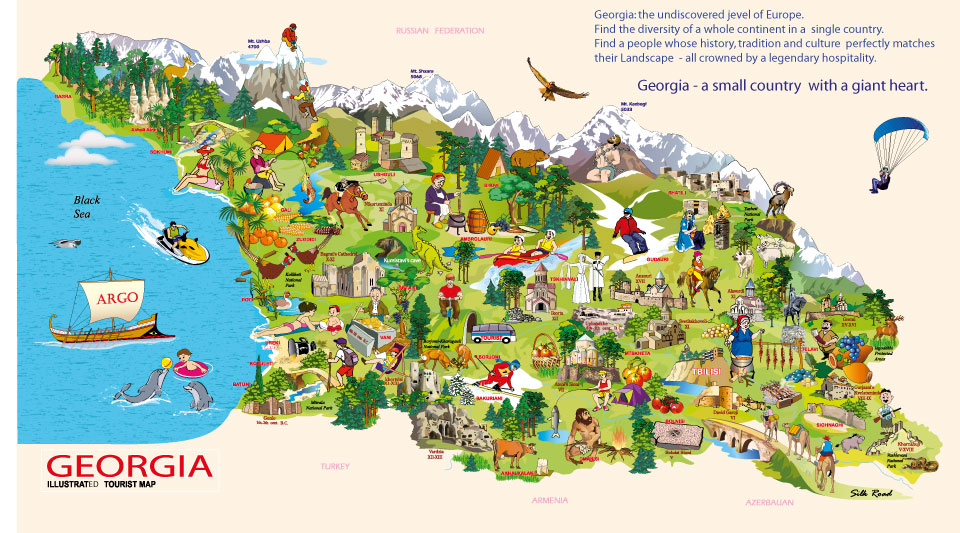
How Georgia detects genuine human emotions to promote Tourism?
The country of Georgia has developed Artificial Intelligence that detects genuine human emotions in social media and has created the most accurate guidebook based on the posts by 7,000,000+ tourists.
During 6 months of intense work, a complex Artificial Intelligence tool was detecting, analyzing and sorting the most genuine human emotions through social media posts of more than 7,000,000 travelers, who shared their impressions about Georgia. These were then used to create the most emotional and accurate guidebook of the country.
The campaign, ‘Emotions are Georgia’, was launched on July 18th, 2018 by Georgian National Tourism Administration (GNTA). At the event, both printed and interactive digital versions of the guidebook were presented.
“Georgia is famous for its hospitality. We love sharing our country with our guests and they, in return, enjoy sharing photos and stories of their journey. These are straightforward, heartfelt and uncensored “reviews”, written not by professional travel writers, but by regular tourists – travelers from all around the world, who’ve actually visited our country.”
Giorgi Chogovadze, Head of Georgian National Tourism Administration
“The main feature of the web-platform is the option to GENERATE YOUR OWN GUIDEBOOK of Georgia. By giving the website access to your basic Facebook information or by simply answering some quick questions, the website analyzes not just your interests, but finds similarities and matches them with the interests of the posts authors, generating the most relevant guidebook for you.”
Vato Kavtaradze, Chief Creative Officer of WINDFOR’S Communication
In 2017, the number of international visitors of Georgia increased by 1,182,534 compared to the previous year and exceeded the record-breaking number of 7 million. One of the reasons for this is the previous collaboration of GNTA and WINDFOR’S. The campaign #emotionsareGeorgia aims to result even more growth in international tourism.
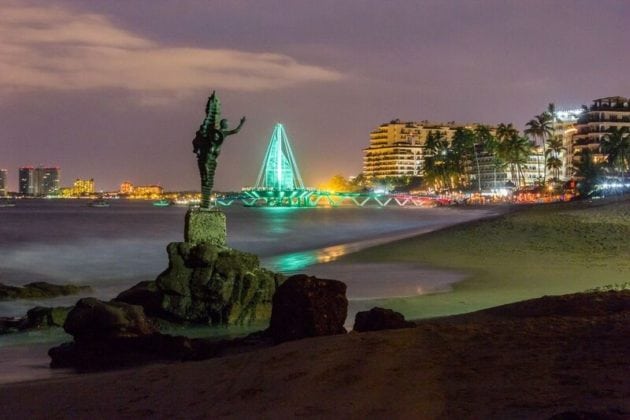
Puerto Vallarta’s Historic Center declared Cultural Heritage of the State of Jalisco
Puerto Vallarta’s Historic Center is now a protected Cultural Heritage of the Mexican State of Jalisco. The declaration was made by the state’s Department of Culture on July 21 via the official journal of Jalisco and makes the center of the city a protected area, with all the rights and privileges of a heritage protected by state and federal laws.
The recognition includes the area from the beginning of the Malecon — where the oldest hotel in Puerto Vallarta, the hotel Rosita, stands — and continues to the cobblestoned Romantic Zone and up to the historic Conchas Chinas neighborhoods. Each area is of special historical significance to Puerto Vallarta, Jalisco and Mexico, as well as the essence of the port city, which is in the midst of celebrating its centennial.
According to the State of Jalisco, this proclamation is a step to further preserve the architectural elements of patrimonial value and image and essential characteristics of the typical town on the seashore, one of the unique qualities of Puerto Vallarta, known as the “most Mexican” beach destination.
“Puerto Vallarta’s historic center is the heart of our city and a major attraction to our visitors and, like all world heritage sites, it must be recognized as an irreplaceable part of our legacy,” said Javier Aranda Pedrero, Director of the Puerto Vallarta Tourism Board. “We applaud the actions taken by Jalisco’s Department of Culture and welcome everyone to enjoy this iconic part of the city.”
The center of Puerto Vallarta is much loved by the people of Vallarta and appreciated by visitors, as it retains authentic characteristics of a traditional Mexican town, in its cobblestone streets and colonial architecture. Of particular interest is the Church of the Virgin of Guadalupe, the city’s central plaza, Los Muertos Pier and colonial homes that date back hundreds of years. Puerto Vallarta’s historic center is a place full of life where neighbors coexist and mix with tourists who enjoy strolls along a boardwalk lined with sculptures, paintings and other works of art.
At dusk, the center is full of locals out for a stroll, heading for church services or dinner. Mixing with them, visitors can soak in the most beautiful sunsets on the Pacific; gaze at bobbing sailboats and the emblematic Marigalante pirate ship; and dig into roasted corn, mangoes with chili, cakes, tuba water and many other appetizers and desserts. All these attractions are located on the boardwalk and neighboring downtown streets, which for many reasons already was — official proclamation or not — a cultural heritage jewel of Jalisco.
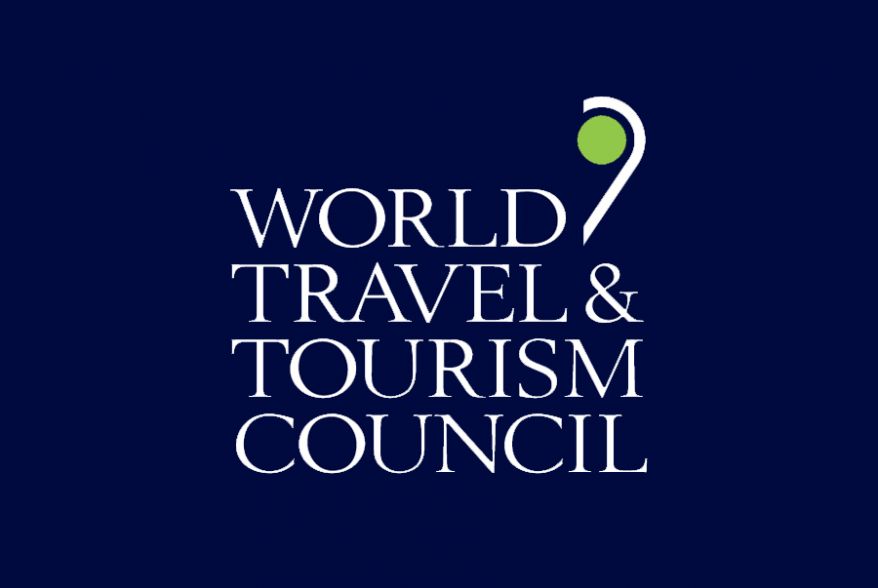
CEOs of Thomas Cook and MSC Cruises to speak at WTTC’s European Leaders Forum
The World Travel & Tourism Council (WTTC) today announces that global leaders from the Travel & Tourism industry will meet at the first WTTC European Leaders Forum in Lisbon, Portugal on 11 September 2018.
Hosted by Ana Mendes Godinho, Secretary of State for Tourism in Portugal, and Turismo de Portugal, this invitation-only event will bring together the CEOs and regional leaders of the top Travel & Tourism companies from across Europe, along with Tourism Ministers and regional experts.
The WTTC European Leaders Forum will engage a select group of leaders who will discuss four of the key issues facing the region’s Travel & Tourism sector: tourism’s role in sustainable urban development, tourism and the future of work, unlocking investment in Europe’s tourism, and supporting innovation in tourism.
H.E Manuel Caldeira Cabral, Minister of Economy, Portugal, H.E Ana Mendes Godinho, Secretary of State for Tourism, Portugal, Peter Fankhauser, CEO, Thomas Cook Group, and Pierfrancesco Vago, Executive Chairman, MSC Cruises will be joined on stage by; Kike Sarasola, President & Founder, Room Mate Hotels & BeMate.com; Robert Swade, CEO, Grace Hotels; Andrea Grisdale, CEO, IC Bellagio; and Mário Ferreira, CEO Mystic Invest, Alain Dupeyras, Head of the Regional Development and Tourism Division, OECD, Aradhana Khowala, CEO & Founder, Aptamind Partners, Miguel Leitmann, Founder & CEO, Vision-Box, Kimmo Maki, President & CEO, Finavia, Ian Taylor, Executive Editor, Travel Weekly, Enrique Ybarra, Founder, President & CEO, City Sightseeing Worldwide, Luís Araújo, President, Turismo de Portugal; Robin Rossmann, Managing Director, STR; Öznur Özdemir Özaltin, Chief Executive, Özaltin Holding (Tourism Group), Ozaltin Holding, Tim Moonen, Manging Director, The Business of Cities.
Gloria Guevara, President & CEO, WTTC, said “We are delighted to be holding our first WTTC Europe Leaders Forum in Lisbon, Portugal. Europe is the largest and most mature tourism market in the world, with tourism generating Euro 1.8 trillion to European economies and supporting 36.6 million jobs. Throughout Europe, Travel & Tourism creates jobs, drives economic growth and helps build better societies. This is particularly the case in Portugal, where Travel & Tourism accounted for 17.3% of GDP in 2017 (USD38.0bn) and generates 1 in 5 of the country’s jobs.
“The outputs from the European Leaders Forum will inform WTTC’s future work in the region and provide a unique and exclusive space for networking amongst the leaders in attendance,” commented Gloria Guevara, WTTC President & CEO. “We look forward to a productive and engaging forum and thank Ana Mendes Godinho and Turismo de Portugal for their continued support.”
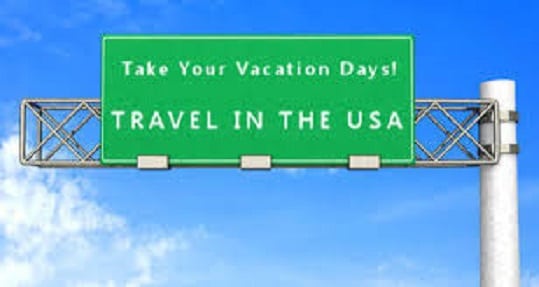
Strength of domestic US travel lessens sting of sluggish international growth
Travel to and within the US grew four percent year-over-year in June, according to the US Travel Association’s latest Travel Trends Index (TTI)—marking the industry’s 102nd straight month of overall expansion.
Despite this positive trend, US Travel economists remain wary that growth of international inbound travel to the US is not keeping pace with the global long-haul travel boom.
Most notable in the TTI is the strength of domestic business and leisure travel, buoyed by near-historic highs in consumer confidence and growth in forward-looking bookings and searches. According to the Leading Travel Index, domestic travel is expected to increase by approximately 2.6 percent in the next six months. While this is good, there are reasons to believe that the elevated level of consumer confidence may be short-lived.
“For the first time in the history of the Travel Trends Index, both the business and leisure segments of domestic travel expanded every month during the first half of the year,” said US Travel Senior Vice President for Research David Huether. “However, rising oil prices and trade uncertainty—particularly with regard to tariffs—have the potential to dampen consumer confidence.”
Through the end of the year, international inbound travel to the US is expected to continue to grow at a rate of 2.2 percent. However, US Travel economists note that the US is well off the pace of long-haul travel worldwide, projected to increase six percent in 2018.
Also, US Travel researchers say, storm clouds continue to gather in the form of trade tensions and rising oil prices.
“Facing these potential headwinds, we urge officials to support policies and messaging that will make clear to the world that the US is open and eager for business,” said Huether.
Despite solid economic activity bolstering both domestic and international travel through the first half of the year, the rate of growth is not brisk enough to help the US regain its slipping share of the global travel market.
The TTI is prepared for US Travel by the research firm Oxford Economics. The TTI is based on public and private sector source data which are subject to revision by the source agency. The TTI draws from: advance search and bookings data from ADARA and nSight; airline bookings data from the Airlines Reporting Corporation (ARC); IATA, OAG and other tabulations of international inbound travel to the US; and hotel room demand data from STR.
Click here to read the full report.
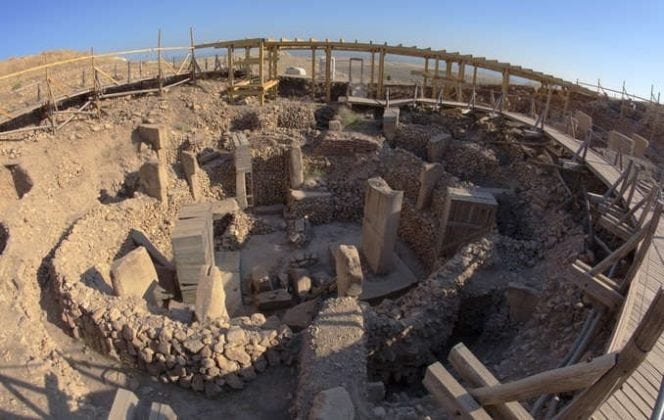
Gobekli Tepe in Turkey added to UNESCO World Heritage List
Gobekli Tepe, considered “The Oldest Temple in the World,” has been added to the UNESCO World Heritage List, making this the 18th UNESCO recognized site in Turkey. The inscription took place during the 42nd World Heritage Committee meeting in Manama Krakow, Bahrain, recently.
According to UNESCO, Gobekli Tepe, in the Germus mountains of south-eastern Anatolia, presents “monumental circular and rectangular megalithic structures, interpreted as enclosures, which were erected by hunter-gatherers in the Pre-Pottery Neolithic age between 9,600 and 8,200 BC.”
“It is likely that these monuments were used in connection with rituals, probably of a funerary nature. Distinctive T-shaped pillars are carved with images of wild animals, providing insight into the way of life and beliefs of people living in Upper Mesopotamia about 11,500 years ago,” the UNESCO listing said.
Discovered during excavations by researchers from Istanbul and Chicago universities, Göbekli Tepe is located near the neighborhood of Örencik in Şanliurfa, 11 miles from the city center. Excavations have continued for 54 years, and many international institutions recognize the site to be “the oldest temple in the world.”
There is a great mystery behind Gobekli Tepe, but what makes it most intriguing is not its large size, its inaccessibility or the beauty of its monuments,” said officials at The Ministry of Culture and Tourism of Turkey. “It is the 12,000-year history that dates it to 10,000 years before the founding of the Roman Empire, 8,000 years before the appearance of the Hittites, and 7,000 years before the Great Pyramids.”
Other Turkish sites added to the UNESCO’s World Heritage List include:
• 2017 – Aphrodisias
• 2016 – Archaeological Site of Ani
• 2015 – Diyarbakır Fortress and Hevsel Gardens Cultural Landscape
• 2015 – Ephesus
• 2014 – Bursa and Cumalikizik: the Birth of the Ottoman Empire
• 2014 – Pergamon and its Multi-Layered Cultural Landscape
• 2012 – Neolithic Site of Çatalhöyük
• 2011 – Selimiye Mosque and its Social Complex
• 1998 – Archaeological Site of Troy
• 1998 – Hierapolis-Pamukkale
• 1994 – City of Safranbolu
• 1988 – Xanthos-Letoon
• 1987 – Nemrut Mountain
• 1986 – Hattusha: The Hittite Capital
• 1985 – Great Mosque and Hospital of Divrigi
• 1985 – Historic Areas of Istanbul
• 1985 – Göreme National Park and the Rock Sites of Cappadocia
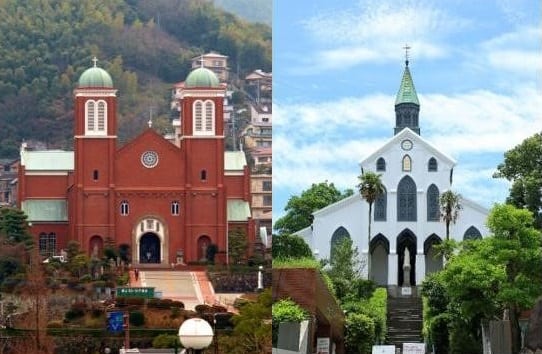
UNESCO designates Japan’s 18th World Cultural Heritage Site
UNESCO has designated a series of sites associated with the checkered history of Christians in 16th- to 19th-century Japan as the country’s 18th World Cultural Heritage Site. The “site” is comprised of 10 villages in northwest Kyushu, as well as the ruins of Hara Castle – originally built by the Portuguese – and St. Mary’s Cathedral of the Immaculate Conception in the city of Nagasaki.
Because the practice of Christianity was banned in Japan until 1873, Christians (known as Kakure Kirishitan) worshipped – and missionaries spread the gospel – in secret. It is the sites’ “secret” churches in remote seacoast “Christian” villages and isolated islands that are the main component of UNESCO’s recognition. The ruins of Hara Castle are another element, as it was used by Portuguese and Dutch missionaries.
One of the most visible examples of UNESCO’s designation is Nagasaki’s Roman Catholic St. Mary’s Cathedral – also known as the Cathedral of the Immaculate Conception – built in 1914 after the ban on Christianity was lifted. The original cathedral was destroyed by the atomic bomb that fell on Nagasaki in August 1945 and a replica of the original was consecrated in 1959. Statues and artifacts damaged in the bombing, including a French Angelus bell, are now displayed on the grounds (and at the Cathedral of the Immaculate Conception). The nearby Peace Park contains remnants of the original cathedral’s walls. Oura Church is another Catholic church in Nagasaki. Built towards the end of the Edo Period in 1864 by a French missionary for the growing community of foreign merchants in the city, it is considered the oldest standing Christian church in Japan and one of the country’s greatest national treasures.
Historically, Nagasaki was long the initial entryway for foreigners to Japan. It was in Nagasaki in 1859, after the United States’ Commodore Perry used gunboat diplomacy to demand an end to Japan’s more than 200-year-old policy of isolation, that diplomats from countries around the world came to demand that the port be opened to trade. Thereafter, Emperor Meiji declared Nagasaki a free port in 1859. And it was Nagasaki that was the setting for John Luther Long’s 1898 novel, Madame Butterfly, which, in 1904, was transformed into an opera by Giacomo Puccini, and remains one of the world’s most beloved operas.
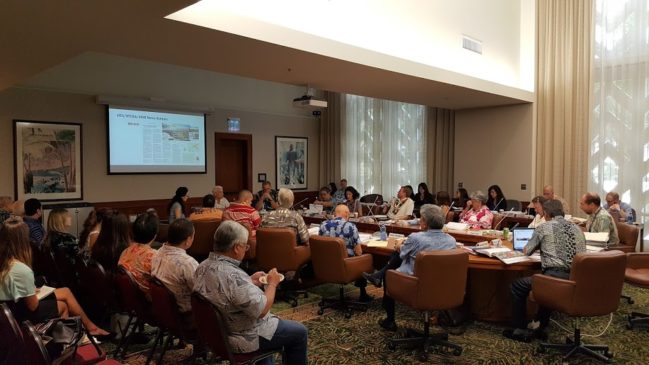
A New Direction For Hawaii Tourism Management?
The morning before the February 28, 2018, joint House & Senate Tourism Committee informational briefing on the 2018 state audit of the Hawaii Tourism Authority (HTA), the Honolulu Star-Advertiser headline read, “State Auditor Clasts HTA For Lax Oversight and Accountability.” The revealing and often combative legislative briefing lasted for over two hours. eTurboNews originally reported the story HERE
Although the HTA later faced a potentially draconian cut to their $85+ million annual budget during the 2018 state legislative session, the final cuts turned out to be relatively small. The HTA budget is funded by the state’s Transient Accommodations Tax (TAT) which applies to all rental properties in Hawaii, including hotels, condos and B&Bs.
Click to read the full article at hawaiinews.online.
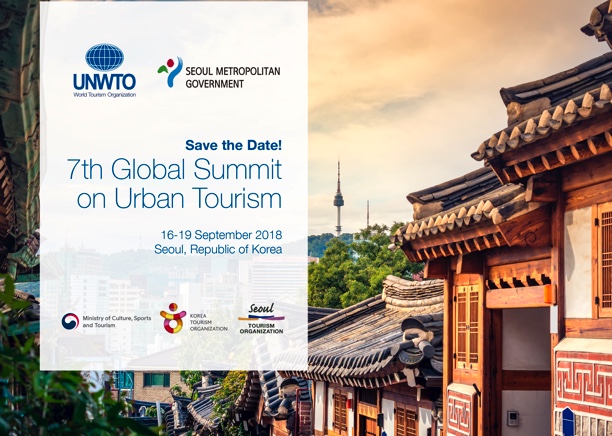
UNWTO: Laying out a Sustainable Future for Urban Tourism
Madrid, Spain, 1 August 2018 – Urban tourism and its potential for more sustainable and inclusive cities will be the major focus of the 7th UNWTO Global Summit on Urban Tourism (16-19 September 2018) in Seoul, Republic of Korea. The Summit aims to set out a vision looking to 2030 for this rapidly-growing tourism segment.
The Summit, the first of its kind in North-East Asia, is designed to encourage new strategic approaches to the challenge of a growing tourism sector and its impact on urban destinations, through sharing of innovative ideas and experiences.
Innovative approaches to competitiveness in urban destinations, technology’s impact on urban tourism, rejuvenation of cities, and increasing inclusion in city development are among the topics to be featured.
BBC support
UNWTO is proud to announce the support of the BBC to the Summit, with the lead presenter of the Travel Show, Rajan Datar, moderating the “High Level Panel: Urban Tourism in 2030” with ministers and mayors from around the world.
This year’s edition will feature B. Joseph Pine II, author of the best-seller ‘The Experience Economy’, who is known for first using the term to describe the major shift in motivation for people to undertake many economic activities, including travel. Other planned speakers include city mayors and representatives of tourism administrations from destinations such as Amsterdam, Barcelona, Cape Town, Osaka, San Sebastian, Singapore and Seoul, companies such as MasterCard, Google and Amadeus, and the World Bank.
The Summit also embraces the growing segment of youth travel through the UNWTO Global Youth Summit on Urban Tourism side-event (18 September).
Seoul as a backdrop
Seoul is a world-class urban tourism destination, with tourism sites ranging from full heritage sites, including traditional palaces or markets, to state-of-the-art architecture and museums. Recent urban regeneration projects have seen an oil depot turned into a culture park and increased tourism interest to venues used for 2018 events the Pyeongchang Winter Olympics and inter-Korean summit.
Seoul as host destination will feature its fair and inclusive tourism initiative in the conference programme, promoting the importance of building inclusive cities for all.
The Summit is jointly organized by the World Tourism Organization (UNWTO) and the Seoul Metropolitan Government with the support of the Ministry of Culture, Sports and Tourism of the Republic of Korea, the Korean Tourism Organisation and the Seoul Tourism Organization.
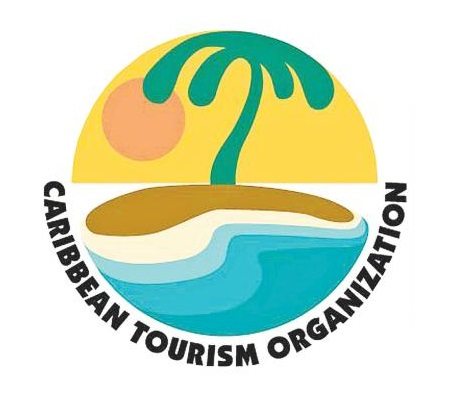
CTO helps Dominica prepare to cope with the impact of climate change
~ A two-day climate sensitisation and disaster risk management workshop was part of a series of training programmes being conducted by the organisation in that member country ~
The Caribbean Tourism Organization (CTO), the region’s tourism development agency, has been working closely with its member country, Dominica, to be better able to plan for, withstand and recover from the negative impacts of climate change and natural disasters.
The CTO has completed a two-day climate sensitisation and disaster risk management workshop in Roseau, aimed at facilitating the sharing of knowledge and best practices on strategies related to climate mitigation and adaptation, as well as identifying sound disaster risk management approaches.
Dominica suffered a direct hit by category five Hurricane Maria last September, which wiped out 226 per cent of its gross domestic product, two years after Tropical Storm Erika passed over the island, destroying an entire village, killing 20 people and leaving behind damage to 90 per cent of the country’s GDP.
“The topics of climate change and disaster preparedness are very pertinent to us in Dominica and in the wider Caribbean. We live in a region that is prone to the effects of climate change and disasters especially hurricanes. Of course, we have first-hand knowledge and recent experience with hurricanes,” Colin Piper, the chief executive officer of Discover Dominica Authority (DDA), the island’s tourist board, said at the opening of the workshop
“Anecdotal data indicates that tourism arrivals after natural disasters reduce by up to 30 per cent for up to three years. We are in fact experiencing a reduction in promotable visitor arrivals. For some properties, their occupancy levels may be up due to aid and agency short stays, but we must address this issue which threatens our livelihood within the hospitality industry and as nation,” he added.
Thirty tourism practitioners and decision makers from the public and private sectors participated in the event, which formed part of the “Supporting a Climate Smart and Sustainable Caribbean Tourism Industry” project currently implemented by the CTO, with funding and technical assistance from the Caribbean Development Bank, through the joint Natural Disaster Risk Management (NDRM) programme for Caribbean Forum states, undertaken in conjunction with the African Caribbean and Pacific Group and the European Union.
The 26-27 July workshop, facilitated by strategic planning expert Dr. Jennifer Edwards, was the latest in a series of training programmes being conducted by the CTO for Dominica.
Earlier this month a “Delivering Quality Service” workshop was held for 55 craft and souvenir vendors, hair braiders and tourism taxi service providers to help them better appreciate the importance of their roles in visitor satisfaction; improve people relations through effective communication and understand how positive visitor interactions result in satisfied visitors.
That workshop, facilitated by the CTO’s regional human resources development consultant Sharon Banfield- Bovell, covered areas such as understanding the customer, the importance of delivering quality customer service and the ten principles of customer service, all areas which Dominica said were critical in ensuring the service providers are equipped with the necessary skill set to deliver the highest level of customer service.
In addition, 25 participants each are to be trained in the management of sites and attractions at a workshop which targets forestry park wardens and the Waitukubuli National Trail Project among others, and a management of service quality workshop for senior executives and general managers in private and public sector tourism enterprises.
The CTO’s resource mobilisation and development division offers several training and development programmes, for member countries and the tourism sector, in keeping with its mandate to assist in developing and strengthening human capital in the region’s tourism sector so as to offer high levels of professional service.
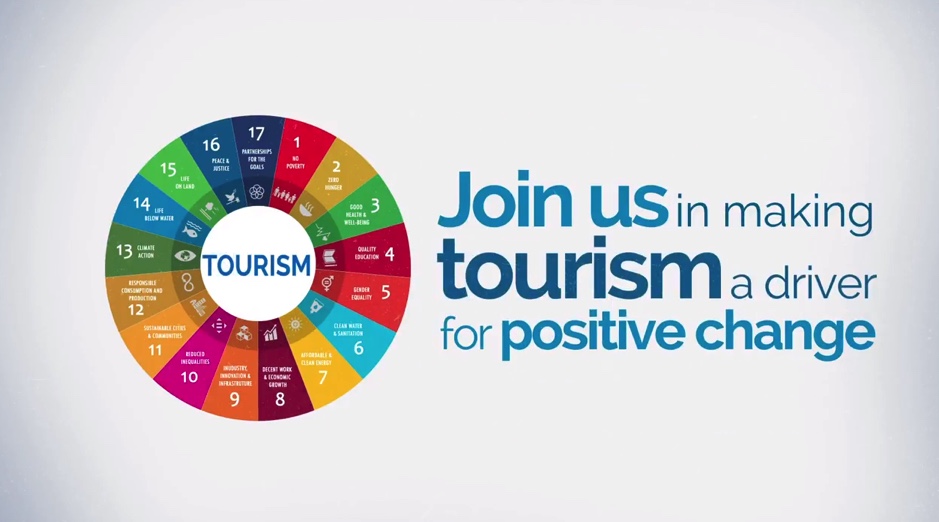
UNWTO launches an online Platform to Achieve SDGs through Tourism
Madrid, Spain, 23 July 2018 – Promoting a greater engagement of the tourism sector with sustainable development is the main objective of the Tourism for SDGs Platform. The online tool is designed to advance the achievement of the Sustainable Development Goals through tourism, and was developed by the World Tourism Organization (UNWTO) with the support of Switzerland’s State Secretariat for Economic Affairs (SECO).
The 17 Sustainable Development Goals (SDGs) constitute an ambitious global agenda for people, planet, prosperity and peace through partnerships. The SDGs aim to end poverty, fight inequality and injustice, and solve climate change by 2030. The economic relevance of tourism, representing up to 10% of the world’s GDP and employment, makes harnessing its full potential essential for the advancement of the SDGs.
Tourism4SDGs.org is a co-creation space that allows users to access a wide range of resources, add their own initiatives, findings and projects, motivate discussion and collaboration, and share content related to tourism and sustainable development.
“Tourism plays a vital role in many, if not all, of the 17 Goals”, said UNWTO Secretary-General Zurab Pololikashvili. “Tourism has come of age as a cross-cutting economic activity with deep social ramifications, and the Tourism for SDGs Platform is providing the global tourism community with a space to co-create and engage to realize the 2030 Agenda for Sustainable Development”, he added.
“Switzerland strongly supports this platform as it will allow a focus on the three main components of sustainable tourism: its economic, environmental and social dimensions,” said Ambassador Raymund Furrer of SECO.
The platform’s three main features act as a call for action. Learn, Share and Act, the three levels of interaction at Tourism4SDGs.org, aim not only to educate but also to encourage conversation and collaboration towards a sustainable tourism sector.
The platform was launched during the United Nations High-Level Political Forum on Sustainable Development ‘Transformation towards sustainable and resilient societies’ (New York, 9-18 July) during an event co-hosted by UNWTO and the One Planet network.
